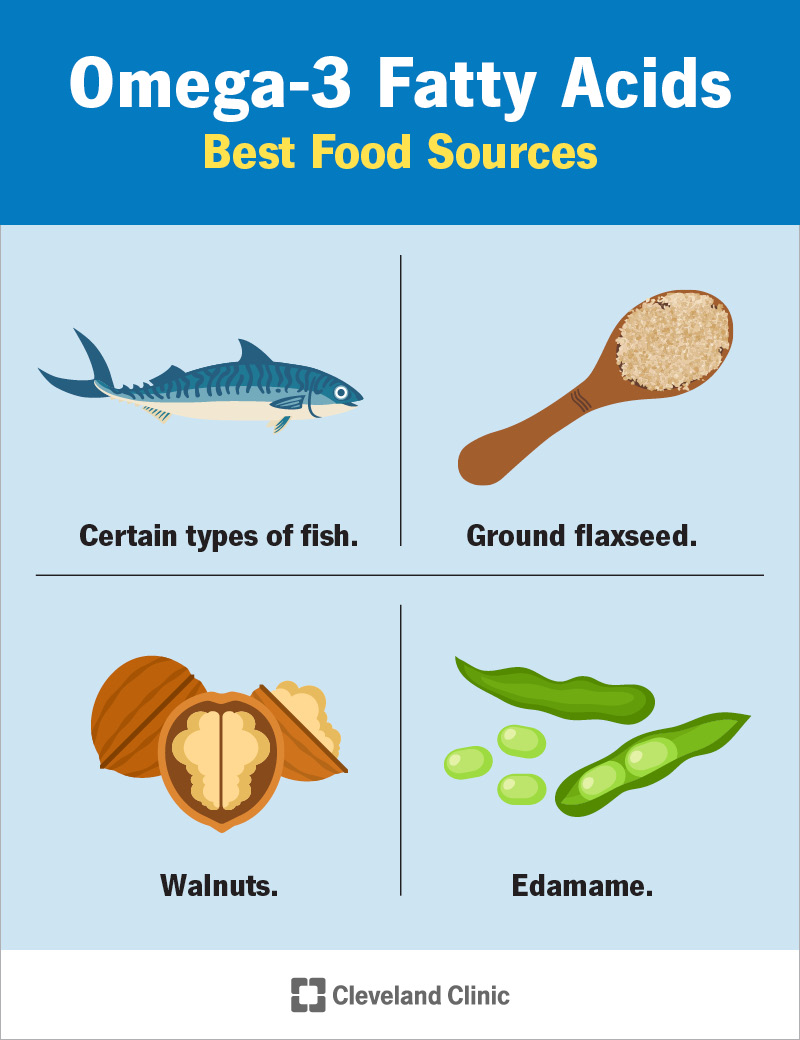Omega-3 fatty acids for Optimal Brain Health are a type of essential fats that are crucial for optimal brain health and function. These fats play a key role in maintaining the structure and integrity of brain cells, as well as supporting communication between nerve cells. Additionally, omega-3 fatty acids have been linked to various cognitive benefits, such as improved memory, attention, and problem-solving skills.
The importance of Omega-3 Fatty Acids for Optimal brain health
Omega-3 fatty acids are essential for optimal brain health and function. They help maintain the structure of brain cells and support communication between nerve cells. By including omega-3 fatty acids in your diet, you can enhance memory, attention, and problem-solving skills. Don’t underestimate the importance of these fats for your brain’s well-being.
Different types of Omega-3 fatty acids
There are three main types of omega-3 fatty acids: EPA, DHA, and ALA. EPA and DHA are found in fatty fish like salmon and mackerel, while ALA is found in plant-based sources like flaxseeds and walnuts. Including a variety of these omega-3 fatty acids in your diet can provide numerous benefits for brain health.
Benefits of Omega-3 Fatty Acids for Brain Health

Omega-3 fatty acids offer several benefits for brain health. They can improve cognitive function, support brain development, and reduce the risk of neurodegenerative diseases. Additionally, they play a role in mood regulation and stress management, promoting mental well-being. Incorporating omega-3 fatty acids into your diet through natural food sources or supplements can help maintain a healthy brain.
Improving cognitive function with Omega-3 Fatty Acids
Omega-3 fatty acids have been found to improve cognitive function, including memory and attention. Studies suggest that these essential fats can enhance brain performance by promoting proper communication between brain cells and reducing inflammation in the brain. To incorporate more omega-3 fatty acids into your diet, consume fatty fish like salmon or take fish oil supplements.
Supporting brain development and reducing the risk of neurodegenerative diseases
Omega-3 fatty acids also play a crucial role in supporting brain development and reducing the risk of neurodegenerative diseases. They aid in the formation of cell membranes and promote the growth and repair of brain cells. Additionally, omega-3s have been linked to a lower risk of conditions like Alzheimer’s and Parkinson’s disease. Incorporating these fats into your diet can help support healthy brain function and protect against age-related cognitive decline.
Food Sources of Omega-3 Fatty Acids
)
The best sources of Omega-3 fatty acids for brain health include fatty fish like salmon, sardines, and mackerel, as well as plant-based sources like flaxseeds, chia seeds, and walnuts. Incorporating these foods into your diet can help ensure an adequate intake of Omega-3s and support optimal brain health.
Best sources of Omega-3 Fatty Acids for brain health
The best sources of Omega-3 fatty acids for brain health are fatty fish like salmon, sardines, and mackerel, as well as plant-based sources like flaxseeds, chia seeds, and walnuts. Incorporating these foods into your diet can help ensure an adequate intake of Omega-3s and support optimal brain health.
Supplements versus natural food sources

Supplements can be a convenient way to increase your Omega-3 intake, but natural food sources are generally preferred. Whole foods provide a wide range of nutrients along with Omega-3s, while supplements may lack these additional benefits. Aim to incorporate fatty fish, flaxseeds, chia seeds, and walnuts into your diet for optimal brain health.
Omega-3 Fatty Acids and Mental Health

Omega-3 fatty acids play a crucial role in mental health, as they have been shown to improve brain function, support neurotransmitter production, and reduce the risk of mental disorders such as depression and anxiety. Incorporating Omega-3s into your diet can help promote mental well-being and overall cognitive function.
The relationship between Omega-3 Fatty Acids and mental well-being
Omega-3 fatty acids have a strong correlation with mental well-being, as they support the production of neurotransmitters and help regulate mood. Incorporating Omega-3s into your diet can be beneficial for managing stress, improving cognitive function, and reducing the risk of mental disorders like depression and anxiety.
Omega-3 Fatty Acids for mood regulation and stress management
Omega-3 fatty acids play a crucial role in mood regulation and stress management. They help reduce inflammation in the brain, which can improve symptoms of depression and anxiety. Incorporating foods rich in Omega-3s, such as fatty fish, flaxseeds, and chia seeds, can help support your mental well-being. Additionally, omega-3 supplements can be a convenient option for ensuring an adequate intake of these essential fatty acids.
Incorporating Omega-3 Fatty Acids into Your Diet
To incorporate Omega-3 Fatty Acids into your diet, focus on consuming foods rich in these essential fatty acids. Include fatty fish like salmon or mackerel in your meals, add flaxseeds or chia seeds to smoothies or yogurt, and use oils like flaxseed or walnut oil in cooking. Alternatively, consider taking Omega-3 supplements for convenience and to ensure an adequate intake.
Tips for adding more Omega-3 Fatty Acids to your meals

To add more Omega-3 Fatty Acids to your meals, try incorporating fatty fish like salmon or mackerel into your diet, sprinkling flaxseeds or chia seeds on your yogurt or smoothies, and using oils like flaxseed or walnut oil in your cooking. These simple tips can help you increase your intake of Omega-3 Fatty Acids for optimal brain health.
Recipes rich in Omega-3 Fatty Acids for brain health
Recipes rich in Omega-3 Fatty Acids can be a delicious way to support brain health. Try cooking up grilled salmon with a lemon and dill sauce, or make a refreshing salad with walnuts and avocado. For a sweet treat, whip up a batch of chia seed pudding with berries. These recipes not only taste great but also provide a healthy dose of Omega-3 Fatty Acids for optimal brain function.
Conclusion
In conclusion, incorporating Omega-3 Fatty Acids into your diet can significantly contribute to optimal brain health. To reap the benefits, prioritize foods like salmon, walnuts, and chia seeds that are rich in these essential fatty acids. You can also consider taking supplements if needed. Remember, a healthy brain starts with nourishing it with the right nutrients.
Summary of the benefits of Omega-3 Fatty Acids for optimal brain health
Omega-3 Fatty Acids offer numerous benefits for optimal brain health, including improving cognitive function, supporting brain development, and reducing the risk of neurodegenerative diseases. Incorporating foods rich in Omega-3s like salmon, walnuts, and chia seeds into your diet can nourish your brain. Consider supplements if needed. Prioritize your brain health by prioritizing Omega-3 Fatty Acids.
Key takeaways and recommendations for maintaining a healthy brain with Omega-3 Fatty Acids
- Include Omega-3 rich foods like salmon, walnuts, and chia seeds in your diet.
- Consider taking Omega-3 supplements if needed.
- Aim for a balanced diet with a variety of nutrients for overall brain health.
- Consult with a healthcare professional for personalized recommendations.
- Stay consistent with your Omega-3 intake for long-term benefits.
Remember, prioritizing Omega-3 Fatty Acids can support optimal brain health and contribute to overall well-being.
For More Blogs visit Aerns

